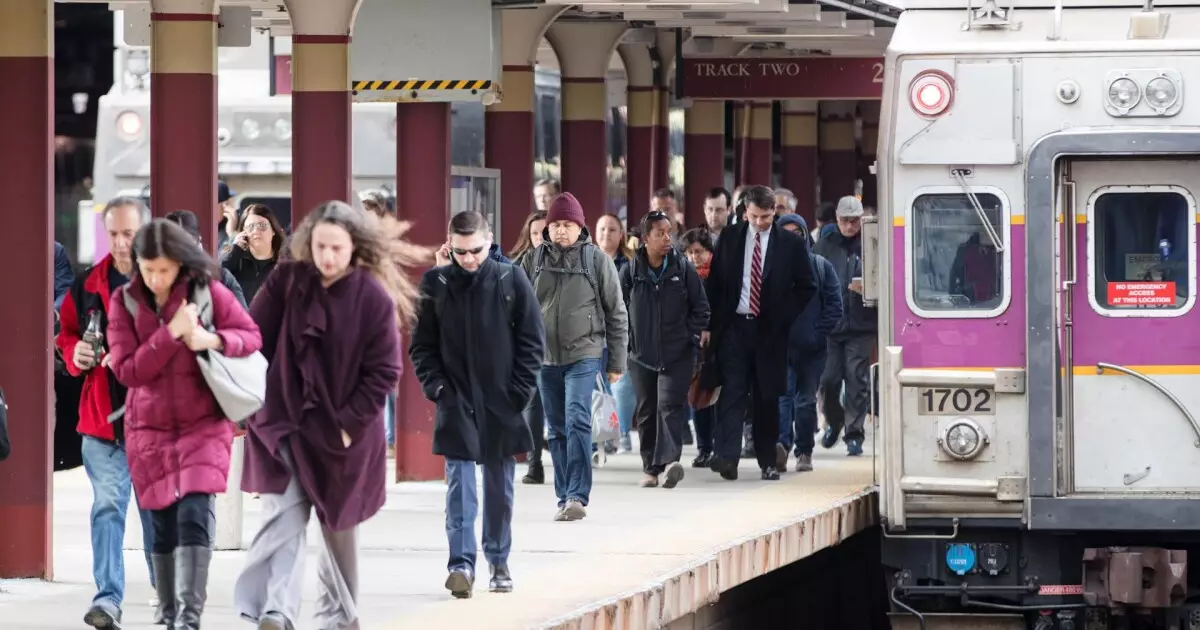Massachusetts is gearing up for a significant financial maneuver as it prepares to issue approximately $490.7 million in municipal bonds. This strategic funding initiative is designed to enhance commuter rail services and support various transportation projects across the state. Scheduled for pricing on Wednesday, following a retail order period the day before, this bond deal represents a multifaceted approach to revitalizing the region’s transit system, a necessity that has become increasingly urgent in light of ongoing operational challenges.
Spanning three distinct series, the bond agreement includes a $150 million revenue bond aimed squarely at elevating the rail enhancement program. This is coupled with $125 million allocated for sustainability initiatives and a substantial $215.7 million in revenue refunding bonds. Central to this plan is the South Coast Rail Project, which seeks to restore commuter rail service links between Boston and southeastern Massachusetts. This region, historically under-served in terms of rail access, will benefit significantly from improved connectivity to the city’s core.
The Massachusetts Bay Transportation Authority (MBTA) is keenly aware of the high stakes involved in this undertaking. Phillip Eng, the MBTA’s General Manager and CEO, articulated their unwavering dedication to delivering the South Coast Rail Project with stringent quality and safety standards. He emphasized that reliable rail service is essential for community trust and successful project implementation. Ongoing quality control measures will play a pivotal role in achieving this goal and in addressing the long-standing issues that have plagued the transit system for years.
The efficiency and reliability of the rail service are prime concerns, especially as public confidence has waned due to inconsistent train operations. Many commuters have grappled with these deficiencies for decades, exacerbated by financial limitations and the legacy of previous infrastructural investments, such as the infamous Big Dig project—one of the most expensive highway undertakings in American history.
The estimated cost for the South Coast Rail initiative stands at around $990 million. Funding for this ambitious project will be sourced not only from the newly issued municipal bonds but also from general obligation bonds and other municipal debt instruments. The comprehensive financial strategy reflects a broader commitment by the state to overcome historical challenges that threaten the MBTA’s long-term sustainability.
Given the increasing level of scrutiny surrounding the subway system, which serves Boston and its suburbs, legislators and state leaders are intensifying efforts to enhance operational efficiency. Under the leadership of Governor Maura Healey, a transportation funding task force has been established to devise both short-term and long-term financial solutions to existing transit issues. Transformative measures, such as eliminating slow zones in the subway system by year’s end, are anticipated to improve transit speed and reliability significantly.
Despite the proactive steps being taken, the MBTA is grappling with pressing financial realities, facing “existential” budget deficits that, according to advocacy groups, could balloon to nearly $900 million by fiscal 2029. In this light, it is clear that while issuing bonds provides a vital influx of capital, addressing systemic financial issues within Massachusetts’ transportation framework will necessitate innovative solutions and potentially significant reforms.
To bolster lender confidence in this bond issuance, credit ratings have been issued accordingly. S&P Global Ratings has bestowed a coveted AAA rating on the bonds, assuaging fears regarding the commonwealth’s fiscal stability and the hydra-headed costs of servicing its debt. Additional ratings include AAA from Kroll Bond Rating Agency and Aa1 from Moody’s, which together serve to solidify the viability of this funding endeavor. Prominent financial institutions, including BofA Securities as the lead manager, and municipal advisors such as Omnicap, are also part of this financial landscape, indicating a collaborative approach to overcoming Massachusetts’ transit funding challenges.
The impending sale of municipal bonds by Massachusetts underscores a significant commitment to revitalizing the state’s transportation infrastructure. While it lays the groundwork for immediate enhancements, there are formidable obstacles on the horizon requiring strategic planning and execution. The necessity for long-term financial health and sustainability of the MBTA cannot be understated, as stakeholders work diligently to ensure that the commuter rail system can reliably serve the public for years to come.

